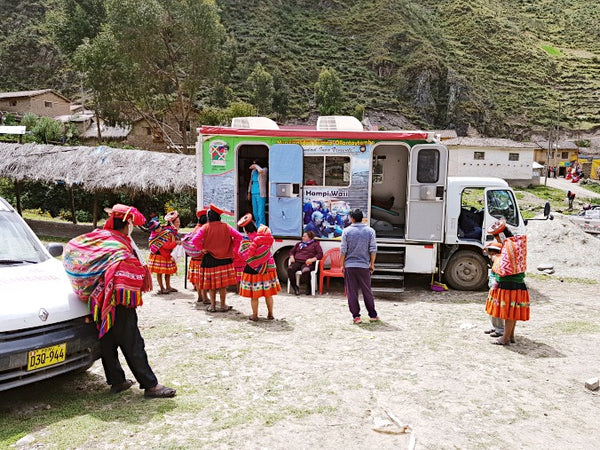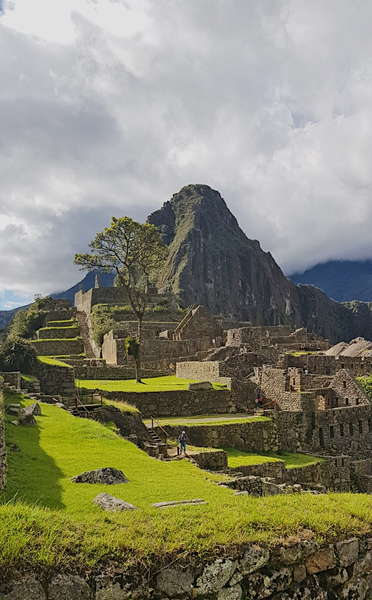Internship report | Peru 2018

Dentists help eV
www.za-helfen.de
za-helfen@web.de
Towards the end of the eighth semester, the idea of a
After a long search, I came across the website of the association Zahnärzte helfen eV at the beginning of 2017, which supports projects in the Sacred Valley of the Incas in the south of Peru and cooperates with the Peruvian association "Corazones para Peru". After a conversation with the chairman Dr. Norbert Reiß, I sent him my application and received a place for April 2018. In the following months, I collected donations and took care of flights, accommodation, etc. For a stay of less than 90 days in Peru, no visa is required.
required. However, you should get vaccinated against yellow fever at least 10 days before leaving Germany.
The contact person on site was the dentist Doctora Brithz Silvera, who explained the basic process of the internship to us at a meeting in the association's office and supported us with help and advice during our placement. In the area around Urubamba, "Corazones para Peru" runs several health stations, so-called postas, which focus on treating children. During my internship, I worked in the children's village of Munaychay, in Huilloc and in the more distant towns of Chaullaccocha and Chopani. These could only be reached after a drive of several hours thanks to a four-wheel drive vehicle provided, as the road conditions in Peru are among the worst in the world. There was also a mobile unit in Yanahuara and a truck from the municipality of Ollantaytambo that had been converted into a mobile health station.

The wards are generally well equipped and have everything you need for most dental treatments. However, you should not expect equipment like in Germany. Root canal treatments, for example, were only possible in Huilloc, as this was the only place where there was a functioning X-ray machine.
Most patients were found to have poor dental health. Teeth often had deep lesions or were completely destroyed. This gave me and my colleagues the opportunity to try out conditions that are rarely found in Germany. Often the only way we could relieve the patient's pain was to extract the affected tooth.
We explained to the children the correct tooth brushing technique and practiced it
with them and carried out fluoridation and fissure sealing. In the truck mentioned above, we looked over the shoulder of a Peruvian dentist. In contrast to the usual practice here, he worked without a dental assistant, on his own.

Dr. Reiß was also on site for two weeks and took several trips with us
Excursions in the area around the sacred Inca valley. He also accompanied us to some of the more distant stations. At one of them we were able to see alpacas in the wild, which stubbornly resisted my attempts to catch them.
The Peruvians themselves were also very friendly - in a small village I was invited to dinner by complete strangers. The patients themselves were also extremely grateful for the treatments, although the Quechua have a superstition that the extraction of a tooth represents a weakening of life energy - which made the treatments somewhat more complicated in some places.

Peru is a country with impressive landscapes and a diverse culture. I would recommend that future interns have a good knowledge of Spanish and a few dental terms in Quechua. It is also important to note that the main hygiene problem is water. You should therefore never drink tap water straight from the tap; you should boil it well first.
I would like to thank Dr. Reiß, Doctora Silvera and everyone who made the wonderful time in Peru possible for me. Many thanks to all donors!
By Philipp Kölbl (University of Munich), in Urubamba, Peru
Period: 01.04.2018 – 30.04.2018















